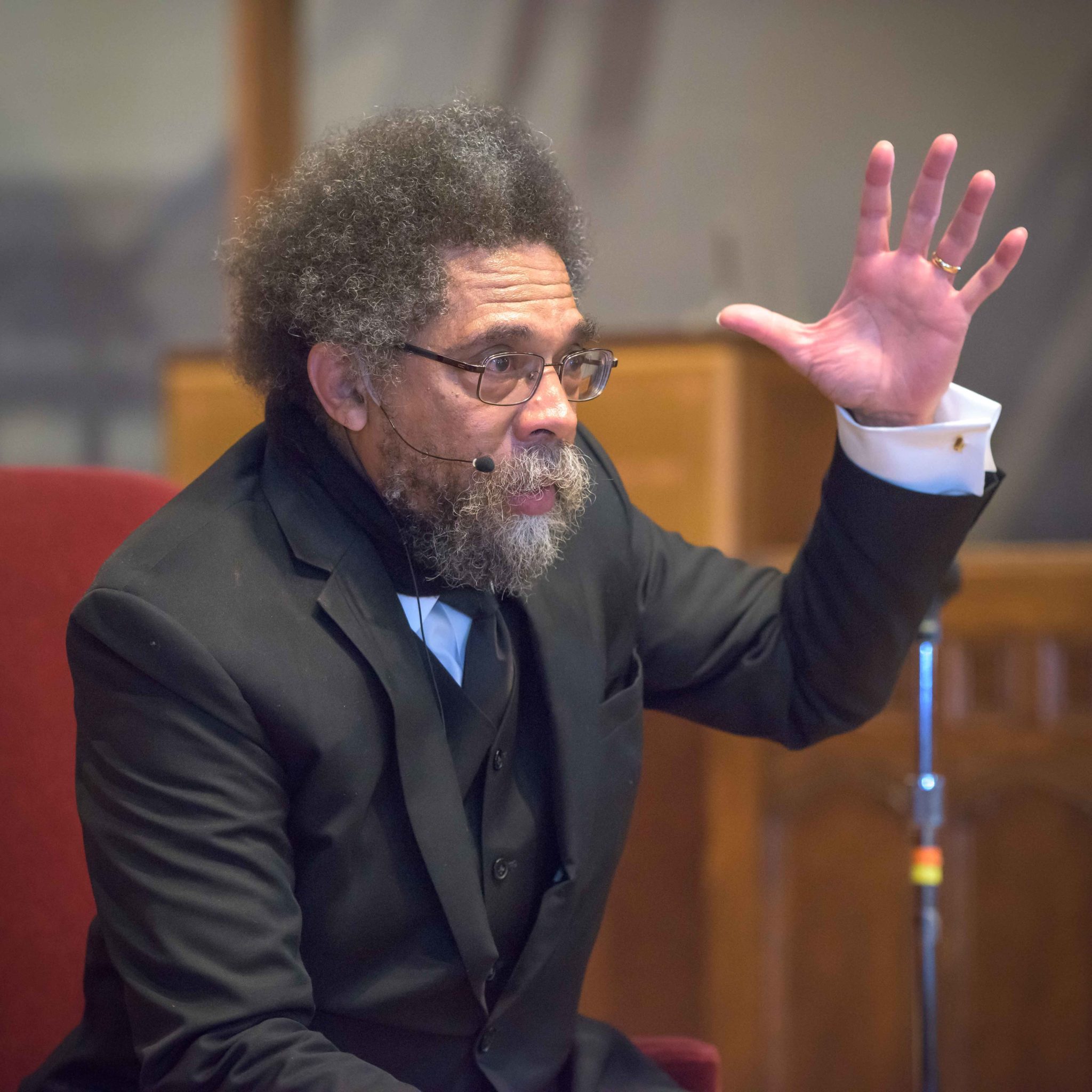
Shermaine Hutchins
Harvard professor Cornel West criticized the elitism of contemporary discussions about race and addressed the importance of recognizing that classism and racism operate in tandem in an address at the Black History Month Keynote Lecture on Sunday.
Sponsored by the Afro-American Cultural Center, the African American Studies Department and the Center for the Study of Race, Indigeneity and Transnational Migration, the lecture celebrated the start of Black History Month, as well as the 25th anniversary of the publication of West’s book “Race Matters.” The audience, which included students, professors and New Haven residents that filled the first and second floors of Battell Chapel, responded to West’s impassioned speech with a standing ovation.
A prominent black history scholar and a political activist, West argued that discussions of race have become increasingly elitist, celebrating icons of success — including former president Obama and the black artists at the Grammys — while neglecting the majority of underprivileged black people. He warned the audience against what he called “the spiritual blackout,” in which people pursue conventional means to success without taking risks to repair systematized injustice.
“The whole generation cannot wait to be high and exceptional but doesn’t understand how to fight,” West said. “Polished professionals are very smart, but most of them are well adjusted to injustice and well adapted to indifference.”
Dianne Lake LAW ’20, who helped organize West’s lecture, said that celebrating the 25th anniversary of “Race Matters” was a powerful way to reflect on and honor black history because the book still holds as much relevance today and our discourse on race should only grow and expand. Published in 1993 on the one-year anniversary of the Lost Angeles riots, “Race Matters” has gone on to sell more than half a million copies. In it, West addresses the crisis in black leadership, the new black conservatism and the strained relationship between Jewish and black Americans.
According to West, racial justice will arrive only when stories of the worst sufferings are brought forward. While many refer to Obama’s presidency as a period of racial progress, West criticized Obama for often siding with “Wall Street executives” rather than America’s poor black population. While Trump is a “know-nothing, narcissistic face of the American empire,” Obama was also “a sophisticated black figurehead of the American empire,” West said.
Instead of blindly praising the icons of black success, West emphasized the importance of recognizing the sufferings of most black people.
“We like to praise black figures in the pantheon, but we don’t talk about what it was really like when they were alive or how most black people live,” West argued.
According to West, true racial progress stems from the “love of truth,” rather than individuals’ desire to succeed in an already racist and classist system. Criticizing the current generation’s “spectatorial cynicism,” West urged students to resist giving into “the society that is so market-driven that you never generate the integrity or fortitude to fight and take risks.”
Students, administrators and New Haven residents interviewed after the event said they enjoyed West’s talk and found his message resonant.
Lake told the News she found West’s point about how classism and racism work in tandem particularly relevant to racial discourses at Yale. Because Yale is a wealthy institution, students must constantly stay aware of their privilege to avoid resorting to “righteous saviorism or complacent elitism,” Lake explained.
Qadry Harris DIV ’18 agreed that West’s criticism of elitist racial discourse applies to black culture at Yale.
“Black students and professionals at Yale do a pretty good job of discussing how racism affects us and the African diaspora,” Harris told the News. “Many times, however, discussion of classism is put to the back, if it gets interest at all. Discussing the dual tandem of classism and racism is really important for us because after Yale, we are all going to have the social and economic capital that most black Americans do not have.”
Others told the News that West’s emphasis on love and dedication resonated with them the most. Paul Hudson, a New Haven resident, told the News that the lecture made him “hopeful that one can do so much for the society with their simple dedication to truth and love, regardless of whether they are an esteemed academic elite or just a member of a community.”
Ward 27 Alder Richard Furlow presented the Board of Alders Citation to West after the lecture. West’s message about the love of truth applies to the New Haven community and humanity as a whole, Furlow told the News. The citation shows the community’s gratitude for West’s demonstration of how “we can advance towards justice and equality as a society,” Furlow said.
CJ McCord ’20, a member of the Zeta Chapter of Alpha Phi Alpha fraternity, presented West with the book “Root and Branch” by Rawn James Jr., which discusses Charles Hamilton Houston’s and Thurgood Marshall’s struggles to challenge the legal foundations of racial oppression. McCord said that presenting the book was an opportunity for the fraternity to “meet another one of our brothers and give back to him for what he’s done for us and our people.” Inspired by West’s lecture, the fraternity is planning to hold discussions about the intersections of race and class this Wednesday.
In celebration of Black History Month, the Af-Am House is holding a screening of “Reflections Unheard: Black Women in Civil Rights” on Feb. 3, “The Trials of Muhammad Ali” on Feb. 6 and “Black Panther” on Feb. 16. Other events this month include a discussion with theologian Kelly Brown Douglas, a hip-hop themed dance party at the Graduate and Professional Student Center of Yale and a Black Excellence Speaker Series featuring Nicholas Turner, Fatima Goss-Graves and Melissa Murray. In addition, the University will hold the 23rd annual Black Solidarity Conference on the topic of “Deconstructing Sex, Sexuality and Gender in the Black Community” from Feb. 8 to 11.
Serena Cho | serena.cho@yale.edu







